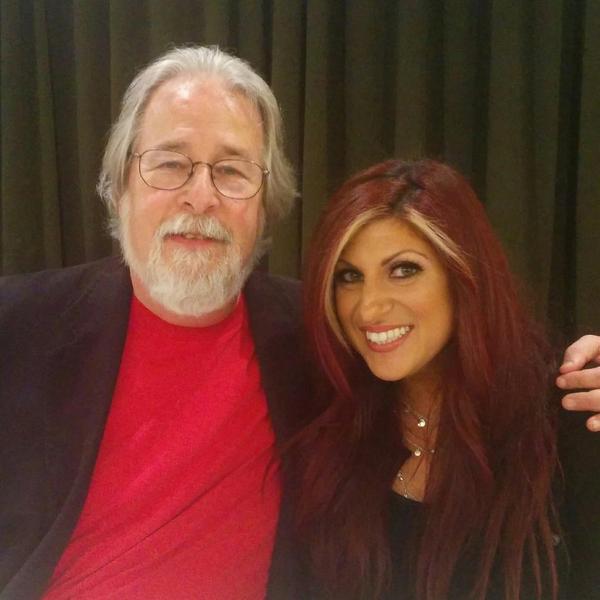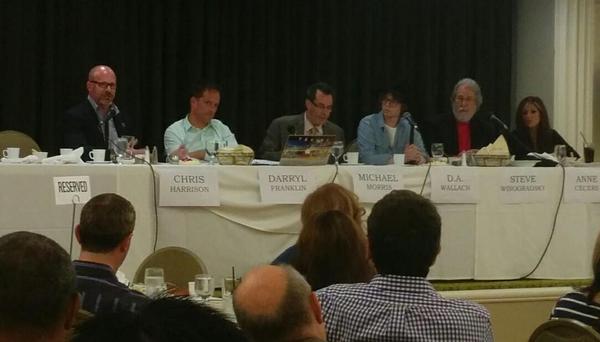 |
| Lisa A. Alter, Esq. |
Many music clients require sophisticated copyright grant termination strategies. A most distinguished expert on this complex topic is New York attorney Lisa A. Alter. In the full length interview below, Ms. Alter graciously shares her intricate knowledge.
Cedar Boschan: What is a copyright grant?
Lisa Alter: A copyright grant is a conveyance of any or all rights in
an original work of authorship (such as books, compositions, motion pictures
and sound recordings) that arise under copyright. Those rights may include the right to
reproduce the work in copies or phonorecords and to distribute those copies,
the right to create derivative works based on the original work and the right
to publicly perform and/or display the work.
Boschan:
Many entertainers earn a
living from copyright grants to publishers, film studios and record
companies. Why would one want to terminate
a copyright grant?
Alter: Termination rights can be very valuable. Typically, the
author (or heirs) may be receiving only a fraction of the income derived from
the exploitation of the copyrights under the grant. Moreover, the author (or heirs) may have
limited or no control or approval over how the copyrights are exploited. Once rights have been terminated and
recaptured in the U.S., the author or his/her heirs may self-administer the
works, enter into an administration deal on terms more favorable than the
original grant, renegotiate terms with the original grantee (perhaps for the
world), or sell all or a portion of the copyrights to either the original
grantee or a third party.
Boschan: Under which conditions can one recapture
a copyright after granting it to another party?
Alter: Some contracts provide for automatic
termination of the grant after a term of years. For example, with respect to
works that were copyrighted prior to January 1, 1978 the term of copyright
protection is divided into an initial 28 year term and a 67 year extended
renewal term. Unless the initial grant of copyright in these works expressly
included a conveyance of “renewals and extensions” of copyright, the grant
automatically terminates upon the expiration of the initial 28 year term. Other
contracts may allow the grantor to terminate the grant in the event that
certain conditions are or are not met.
With respect to “life of copyright” grants, the grantor may be able to
exercise a statutory right of termination.
For pre-1978 grants made by the author or his/her statutory heirs,
statutory termination may be effected during the five year period commencing 56
years after the date the work was first published or registered for
copyright. For post-1977 grants made by
the author, the statutory termination may be effected during the five year
period commencing 35 years after the date of the grant (or, where the grant includes
the right of publication, the five year period commencing on the earlier of 35
years after publication under the grant or 40 years after the date of the
grant). In order to effect statutory
termination for either pre-1978 or post-1977 copyrights, the statutory notice
requirements must be fulfilled.
Boschan: Who may terminate a copyright grant?
Alter: The author, or if the author is deceased, the author’s
statutory heirs may terminate a grant of copyright. Statutory heirs include the author’s surviving
spouse and children (and in the case of a deceased child, the children of such
deceased child). If the author leaves no
surviving spouse, child or grandchild, the author’s executor, administrator,
personal representative or trustee may terminate a grant in the author’s place.
Boschan: Works for hire cannot be recaptured. How can one tell if one’s copyright is a work
for hire?
Alter: Just because a contract says that a copyright is being
created as a work made for hire does not mean that it is, in fact, a work made
for hire. The rules are different
depending on whether the work was created before January 1, 1978 or on or after
that date. For pre-1978 works, the
courts will typically apply an “instance and expense” test in determining if a
copyrighted work is work made for hire, which examines whether the work in
question was created at the instance and expense of the employer. From 1978 on,
a work will be deemed to be a work made for hire if either (a) the work was
created by an employee during the course of his/her employment (as determined
by general agency standards), OR (b) the work was expressly commissioned as a
work made for hire for inclusion in one of nine
enumerated categories (the categories include audio-visual works but,
notably, do not including sound recordings).
Boschan: What steps do you take to terminate a
copyright grant?
Alter: The first step is to evaluate all relevant information
about the grant, the subject copyright(s), the author(s) and the parties to the
grant. Next, one determines the time
frame for serving notice and, at the proper time, prepares the notice taking
care that it complies in form and content with the criteria set forth in the
Copyright Act and attendant regulations.
Then, one serves the notice on the original grantee and/or the grantee’s
successor(s) in interest and records the notice in the Copyright Office. It bears noting that the mechanism for proper
service of notice of termination is complicated by design. Since the effect of improper service may be
forfeiture of one’s termination right, it is worth getting professional
guidance in the process. Recipients of
notices of termination should also scrutinize the notice to ascertain whether
the notice conforms to statutory requirements.
Boschan:
After a copyright grant
is terminated, what, if any, rights does the original assignee retain?
Alter: After a grant of copyright is terminated, the original
assignee will retain the rights to derivative works created during the term of
the grant. For example, a music
publisher who loses rights in a composition will retain the right to exploit
sound recordings embodying the composition that were created prior to
termination and will continue to collect mechanical license fees from the sale
of those sound recordings. However, the publisher cannot release that sound
recording in a different format or authorize new recordings of the composition
after the effective date of termination.
Boschan: Does this apply in the USA only, or
throughout the world?
Alter: Statutory termination is limited to the United States. If a grant was a worldwide grant (whether
made in the U.S. or abroad) the grant will terminate in the U.S. but continue
outside the U.S.
Boschan: Do you help clients recapture foreign
copyrights?
Alter: We frequently are asked to assist clients in asserting
rights in the so-called “British Reversionary Territories” or “BRTs”. There is a limited reversionary right that
may be available in one or more of the countries that were part of the United
Kingdom in 1911. Depending on the date
of the relevant grant made by an author, rights may automatically revert to the
author’s heirs 25 years after the death of the author. Keep in mind that for most of the BRTs the
date of the grant is critical. For
example, in England the reversionary right only applies to grants made by an
author on or before June 1, 1957.
Boschan: Are some copyrights easier to recapture
than others?
The copyright
termination provisions apply to all grants of rights under copyright. There is no category of copyright that is
“easier” to terminate. Rather, the ease
of termination will depend on the complexity of the relevant factors in the specific
circumstances surrounding the copyrights and grants.
Boschan: What happens when there is a mistake on
the termination notice?
Alter: Some mistakes may be deemed “harmless error” and will not
invalidate the termination notice. Other
mistakes – including misidentifying the applicable termination provision,
serving notice on the wrong party or failing to record a notice in the
Copyright Office prior to the effective date of termination – may render the
notice ineffective. If a notice is
ineffective and the time frame for serving notice closes before a new notice is
served, then the author (or heirs) may lose the right to terminate the grant.
Boschan: Is terminating a copyright grant
expensive?
Alter: The basic costs of serving a notice of termination by
certified mail (not necessary, but recommended because it affords proof of
service) and recording the notice in the Copyright Office are fairly
minimal. The related legal costs
involved in reviewing a matter to determine the applicability of the statutory
termination provisions, preparing the notice(s) of termination and implementing
termination will vary, depending on the complexity of the situation. Clearly, the more copyrights and/or contracts
involved, the more complicated the process may be, which could impact the
cost.
Boschan: What happens after you notify a company
of your client’s intention to terminate a copyright grant?
Alter: That depends.
Sometimes, the company will contact us right away to discuss reacquiring
the terminated rights. The original
grantee (or its successor) has an exclusive negotiation period between the time
that notice of termination is served and the effective date of termination (at
least two years) during which it is the only party allowed to enter into a
further grant of copyright with respect to the terminated rights. In other circumstances, the company may
remain silent in which case we may reach out to the company to discuss a new
grant (if our client is interested in continuing its relationship with the
company). Otherwise, we wait until the
rights actually revert on the effective date of termination, reclaim the works
and help the client decide how the recaptured rights will be administered in
the future.
Boschan: Do most people who are eligible to
reclaim copyrights do so?
Alter: An increasing number of authors are exercising their
termination rights. Those who do not may
simply be unaware of the opportunity. An
exception may be in a situation in which an author is deceased, leaving children
and a spouse who is not the parent of those children. In this case, a majority of the heirs may not
be willing to act together to effect termination. Since it is necessary for the spouse and at
least one child to sign a termination notice, the opportunity to terminate may
be lost.
Boschan: Can you recover a partial interest in a
copyright – for example, on behalf of one of two co-authors of a work?
Alter: Each author of a joint work may terminate a grant and
recapture rights with respect to his/her share of the work. There are frequently situations in which one
author terminates a grant and recaptures his/her rights, while the rights of
his/her co-author remain with the original grantee. The only caveat is that
with respect to grants made by the author on or after January 1, 1978 where two
or more authors were signatory to the same grant, a majority of those
authors must sign off on the notice of termination.
Boschan: What about on behalf of only some of an
author’s heirs?
Alter: Where an author is deceased, a majority of the author’s
statutory heirs must execute the notice of termination. For example, if an author dies leaving a
widow (who by law has a 50% interest in the author’s termination rights) and
two children (who share the remaining 50% interest), the widow plus at least
one of the children must be party to the termination notice. Once termination is effected, the rights will
revert to all of the author’s statutory heirs in their pro-rata share (even
those heirs who did not sign off on the notice of termination).
Boschan: How does the possibility of reversion
impact the value of a copyright?
Alter: Termination rights
can be very valuable for authors or heirs.
However, the possibility of termination or reversion will undoubtedly
have a negative impact on the value of a copyright for a grantee seeking to
sell its assets. For example, if a music
publisher has a large catalog of compositions that includes songs which may, in
the future, be subject to termination, a potential purchaser of the catalog may
want to discount the value of the catalog to compensate for the potential loss
of U.S. rights. Alternatively, a portion of the purchase price may be held back
until the period for serving notice of termination closes without notice being
served.
Boschan: How do you collaborate with accountants
on copyright termination matters?
Alter: We collaborate with accountants on a variety of termination
matters including analyzing potential termination issues affecting financial
due diligence in connection with the sale or purchase of copyright catalogs,
assessing the potential impact of copyright termination with respect to the
appraisal of musical catalogs for estate, divorce, or other valuation purposes,
and evaluating the potential risks or opportunities presented by the
termination provisions for copyright owners or authors in conjunction with the
accountants that represent them.
Boschan: Why do so few attorneys understand the
intricacies of copyright grant terminations?
Alter: The termination process is highly technical and involves a
very particular knowledge base that many attorneys do not need to draw upon in
their typical transaction or litigation practices. Because of the potential complexities of
termination – and the inherent dangers of lost opportunity if a termination
notice is improperly served – termination matters are often referred to
attorneys whose practice focuses in that area.
Boschan: What are the current “hot topics” in the
world of copyright grant termination?
Alter: Perhaps the “hottest” topic involves the right to terminate
grants of rights in sound recordings.
While in some instances record labels have taken the position that sound
recordings are works made for hire and thus not subject to termination, this is
certainly not uniformly the case. A
growing number of performing artists and producers are, in fact, serving notice
of termination on record labels and either recapturing the rights to their
sound recordings or renegotiating their agreements with the labels.
Another “hot
topic” concerns so-called “gap issue” grants. That is, contracts that provided
for the author to deliver works created over a term of years. Where that term
begins prior to 1978 but continues thereafter, works created and delivered
post-January 1, 1978 may fall into a “gap” in the termination provisions. The
better approach is to treat these works as having been granted by the author
when the work was created on or after January 1, 1978 despite the fact that the
contract was signed before 1978.
###
Lisa
A. Alter is a partner in the firm of Alter & Kendrick, LLP in New York
City. Her practice is focused primarily in the area of copyright law, with a
particular emphasis on domestic and international music copyright issues. She
advises composers, authors, musical estates, and music publishers on a wide
variety of transactional and licensing matters, conducts in-depth copyright due
diligence in connection with the acquisition, sale and/or administration of
copyright catalogues, and consults on issues involving termination of grants,
recapture of copyrights, and foreign reversionary rights. Her clients include
songwriters, composers and performing artists, prominent musical estates, and
music publishing companies. Ms. Alter
has testified as an expert witness in matters involving music publishing
interests and copyright termination rights.
Ms. Alter is a graduate of Wesleyan University and New York University
School of Law and she is the author of “Protecting
Your Musical Copyrights” which has recently been released in its third
edition.










